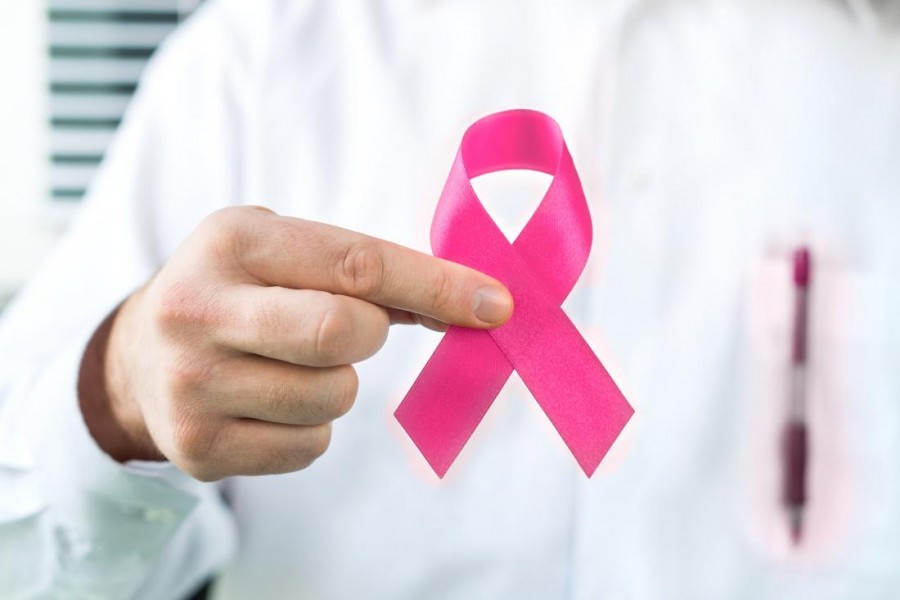Despite an apparent rise in deaths from cancer, Bangladesh has no national arrangement for securing statistics of patients of the deadly lifestyle disease, health practitioners admit.
Also, the country has made progress in cancer treatment and set up modern facilities but mostly in the public sector, which only covers 10 per cent of the patients.
Cancer is often diagnosed at the last moment in absence of early detection system and culture in the country.
“Only treatment cannot be a solution to cancer. One-third of cancer cases could be reduced through building awareness. Lives could be saved through early detection and treatment in the initial phase,” said Md HabibullahTalukder Ruskin, an Associate Professor and head of cancer epidemiology department at National Institute of Cancer Research and Hospital (NICRH).
In 2020, 156,775 new cancer patients were reportedly detected and 108,990 died from the disease in 2020 in the country. This figure was compiled by the International Agency for Research on Cancer of the World Health Organisation (WHO).
In Bangladesh, most of the male patients suffer from lung and oral cancer and females from breast cancer and cervical cancer.
Still, DrHabibullah Talukder pointed out that the country Bangladesh has made a significant progress in cancer treatmentin the past two decades, by bringing in modern technology, and setting up training facilities and some hospitals for the purpose.
“But those government treatment facilities can cover only 10 per cent of the cancer patients in the country,” he told The Financial Express on the World Cancer Day on February 4.
At present, he added, breast and cervical cancer screening is underway under a project at Bangabandhu Sheikh Mujib Medical University Hospital (BSMMU).
The cancer specialist insisted that “for an early detection, we need the internationally recognised screening facility at the national level which is available in many countries including neighboring India.”
He recommended that the government should engage national institutions and experts in the management and supervision.
No national database
Since Bangladesh has no national data of cancer cases, it has to depend on some global projections based on average data.
Suggesting a national screening policy for early cancer detection, he said “only NICRH has hospital-based registration for patient databases, but population-based registration has not yet been introduced nationally.”
He suggested “launching a population-based cancer registry even as a pilot project on an emergency basis to learn the field scenario.”
Costly treatment
Bangladesh as a signatory to universal health coverage has the commitment to providing cancer services to the public.
However, people have to bear huge financial burden of diseases due to insufficient health budget and lack of universal health coverage.
Families that have financial ability mostly prefer to visit other countries, including India for treatment.
Some 23.6 per cent of the total number of people who went to India for treatment in 2009, was Bangladeshi. 10 years later in 2019, the rate of Bangladeshi medical tourists in India stood at 57.5 per cent, according to the Ministry of Tourism of India.
Meanwhile, another survey by the Bangladesh Bureau of Statistics (BBS) found that millions of people from Bangladesh travel to various countries, including India, for treatment.
In government-run healthcare facilities, it takes TK 100,000 to Tk 150,000 as average cancer treatment cost which starts from 0.5 million or 1.5 million to an indefinite expenditure at private healthcare. “We don’t have active regulation on defining the cost at private facilities,” Dr. Habibullah mentioned.
“The government should provide more health subsidies for cancer treatment,” he demanded.
Precautionary measures needed
Unplanned urbanisation, globalisation, environmental pollution, unhealthy food habits and stress in lifestyle are major causes of the rising cancer cases.
Late marriage and irregularity in breastfeeding are identified as causes of breast cancer among women.
“Our recent study also showed that cancer detected among farmers was increasing. Use of insecticides, toxic chemical-based fertilizer, soil and water pollution caused skin cancer among farmers,” Dr Habibullah said.
He mentioned that the project of setting up cancer treatment centres in eight divisional cities has already kicked off.


